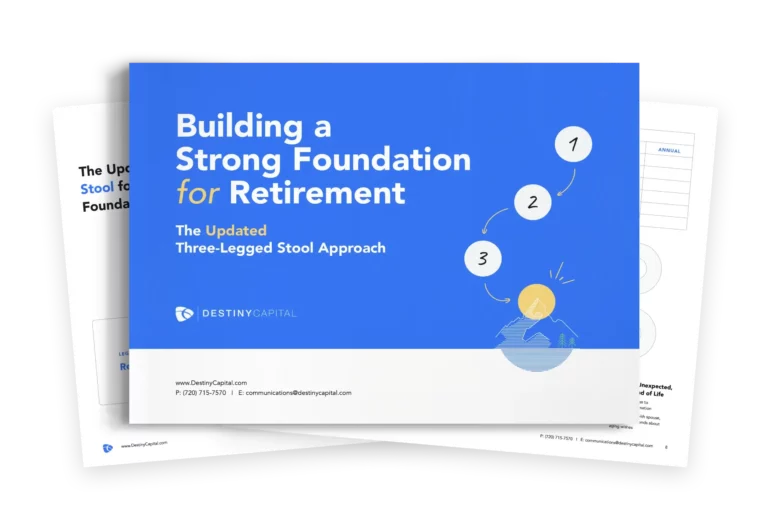Choosing the Right Business Structure: Why It Matters More Than You Think
Your business structure significantly impacts your tax burden, personal liability exposure, and long-term wealth creation potential. As your business evolves, we believe the optimal structure should evolve with it — moving from a simpler entity like a sole proprietorship to more strategic options like an S-Corporation or C-Corporation can potentially save thousands in taxes annually while better protecting your personal assets.
Why Entrepreneurs Often Overlook Entity Selection — And Why That’s a Mistake
When entrepreneurs first launch their businesses, entity selection often takes a backseat to more pressing concerns like product development, marketing, and simply getting those first customers. However, our advisors have seen firsthand how this seemingly administrative decision can become a powerful strategic lever for creating both business and personal wealth. The right structure creates alignment between your business operations and personal financial goals, bringing clarity to taxation, income planning, and your eventual exit strategy.
Is your business structure optimized for where you are now? Schedule a complimentary wealth assessment with Destiny Capital today.
How the Right Business Structure Impacts Your Financial Future
When building your business, selecting the right structure isn’t merely paperwork. It’s a cornerstone decision that shapes your financial future in ways that aren’t always obvious at first glance. Your choice carries major implications for:
- Tax efficiency and planning opportunities
- Personal asset protection
- Income optimization strategies
- Succession and exit planning
After working with entrepreneurs in all phases of the business lifecycle, we’ve found that many business owners benefit from revisiting their entity choice as their companies grow and evolve.
Let’s break down the pros and cons of each structure and when they typically make the most sense.
Sole Proprietorship: Simple Start, But Limited Protection
For those just starting out or testing a side business, a sole proprietorship offers simplicity and ease of setup. There’s no formal filing required beyond your personal tax return – where all income flows – and becomes subject to self-employment taxes. While this structure works well for early-stage ventures, it provides no liability protection and limited tax planning opportunities. As your income grows, the self-employment tax burden alone often justifies considering a more strategic entity choice.
Partnerships: Collaborating with Clear Terms
When multiple founders are building together, partnerships become the natural default. These feature pass-through taxation with income divided among partners via Schedule K-1s. The critical strategic element here isn’t the tax treatment but rather creating a thoughtful partnership agreement that addresses profit-sharing, decision-making roles, and potential exit scenarios. We recommend not only establishing these terms at formation but reviewing them annually as your business evolves — relationships and contributions naturally change over time, and your legal structure should reflect this evolution.
LLCs: Flexible and Scalable for Growing Businesses
As businesses establish consistent operations and begin generating meaningful revenue, Limited Liability Companies (LLCs) often become the go-to structure, providing flexibility alongside personal asset protection. By default, single-member LLCs are taxed as sole proprietorships and multi-member LLCs as partnerships, but the strategic opportunity emerges as profitability increases. LLCs can elect S-Corporation taxation, potentially saving significant self-employment taxes by allowing owners to take reasonable salaries plus distributions that aren’t subject to these additional taxes.
S-Corporations: Optimize Taxes as You Scale
For businesses with established profitability patterns, S-Corporations (S-Corp) often represent an optimal tax structure. Owners must take reasonable compensation as salary (subject to employment taxes), but additional profits can flow as distributions without the 15.3% self-employment tax burden. Beyond tax savings, this structure creates excellent opportunities for building retirement wealth through qualified plans like Solo 401(k)s or SEP IRAs, further reducing taxable income while building your personal financial foundation.
C-Corporations: Best for High Growth and Outside Investment
When pursuing high growth, equity investment, or positioning for eventual acquisition, C-Corporations present unique strategic advantages despite the potential for “double taxation” (taxation at both corporate and shareholder levels). The 21% corporate tax rate can be advantageous for reinvesting profits at lower rates than individual tax brackets would allow. Additionally, qualifying businesses may benefit from Section 1202 Qualified Small Business Stock treatment, potentially eliminating capital gains taxes on portions of future sale proceeds— a powerful consideration for businesses with significant growth potential.
When to Reevaluate Your Business Structure
Your business entity may need to evolve as your company grows and your personal financial objectives become clearer. Several signals typically indicate it’s time to revisit your structure:
- When annual profit exceeds $50,000-75,000, making self-employment tax reduction strategies valuable
- When expanding operations increase concerns about personal liability exposure
- When you’re planning to raise capital or bring on investors
- When your exit horizon begins taking shape, requiring alignment with succession plans
- When you’re focusing on creating a significant retirement nest egg alongside your business
Aligning Business and Personal Wealth with the Right Structure
The right business structure creates a foundation for both business growth and personal wealth creation by optimizing tax efficiency, ensuring appropriate liability protection, and establishing wealth-building pathways that extend beyond the business itself.
At Destiny Capital we believe that entrepreneurs benefit from having a strategic thinking partner who understands both business operations and personal finance — someone who can help ensure these two worlds work in harmony.
Ready to optimize your business structure to support both your company’s growth and your personal wealth objectives? Let’s collaborate to ensure your business structure is creating the tax efficiency, liability protection, and wealth-building opportunities you deserve.
Schedule a complimentary wealth assessment with Destiny Capital today to draw a clear path from where you are now to the future that’s meant for you.
Share this
Stay Ahead with Smart Investments
Learn how to invest wisely and minimize risks to protect your retirement savings.
Achieve Your Retirement Goals
Get personalized advice to meet your retirement goals. Book your call with Destiny Capital now.




